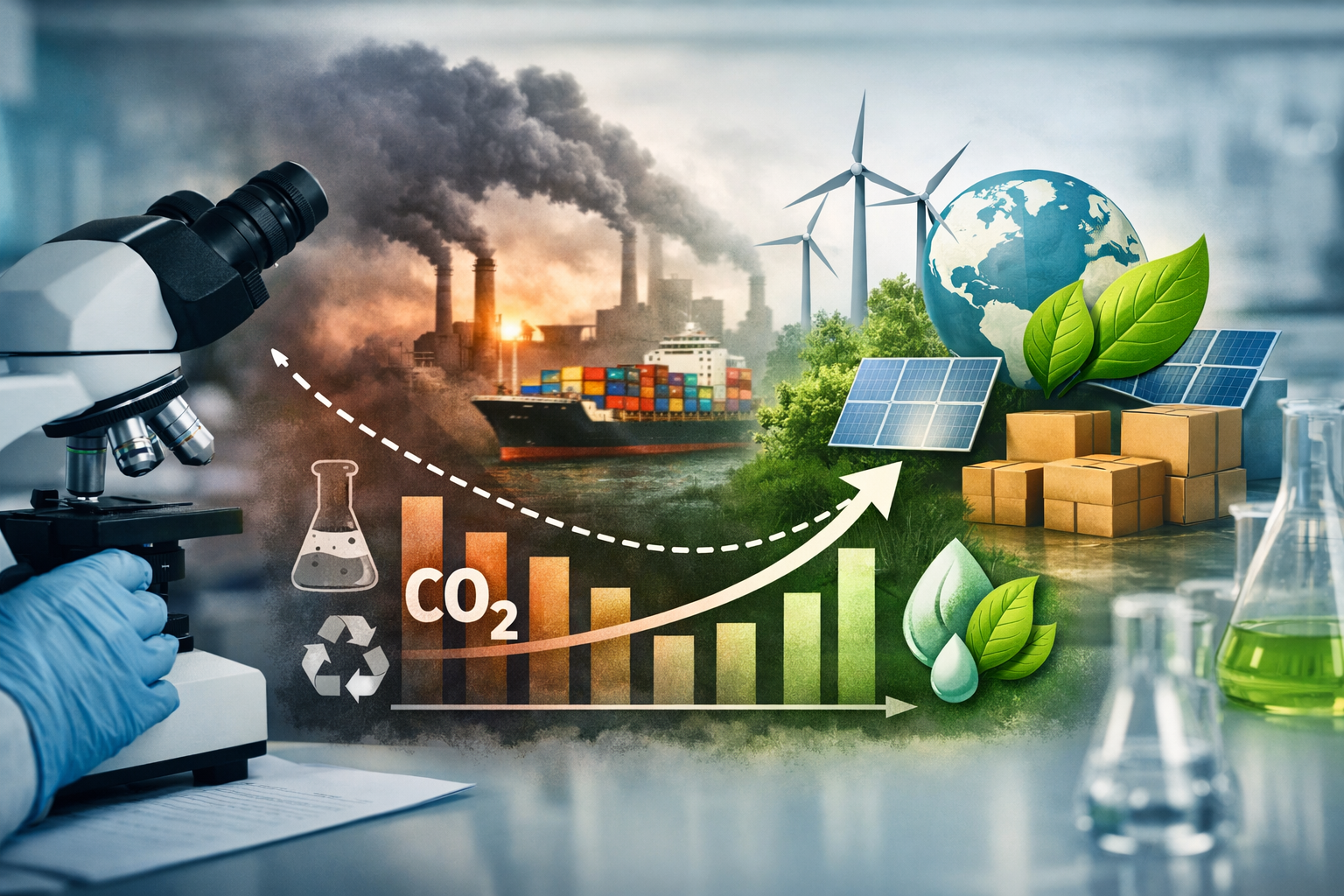Transforming Lab Sustainability: A People-First Approach

Lab sustainability matters. It's not just about saving the planet. It's about smart business and better science. But change is hard. Scientists resist it. They've learned specific methods. They stick to them. So how do we make labs greener without disrupting vital research?
The answer: Start with people. Focus on education. Make small changes. Build trust. Here's how to do it.
Why Labs Need to Change
Cities are getting serious about carbon reduction. Boston and Cambridge have new ordinances: BERDO and BEUDO. These mandate carbon neutrality for large buildings by 2050. Penalties for non-compliance? Steep. $1000 per day in Boston.
Labs often occupy these buildings. They're energy hogs. They generate tons of waste. But they're also doing crucial work. We can't just shut them down. We need a smarter approach.
Education is Key
Scientists aren't the enemy of sustainability. They're potential allies. But they need to understand why changes matter. And how those changes won't hurt their work.
Don't lecture. Explain. Show them how small tweaks can make a big difference. Like:
- Proper waste sorting
- Smarter equipment use
- Optimized HVAC systems
The goal? Make sustainability part of their process, not an obstacle to it.
Focus on Small, Achievable Changes
Big overhauls scare people. They're expensive. They disrupt work. Instead, start small. Look for easy wins:
- Waste sorting: Put a compost bin in the kitchen. Recycle nitrile gloves instead of tossing them in red bags.
- Equipment use: Modulate cold storage. Ensure biosafety cabinets operate correctly.
- Plastic circularity: Recycle lab plastics into new parts.
These changes add up. They save money. They reduce waste. They cut energy use. Best of all? They're painless.
Build Trust Through In-Person Consultations
Don't be a faceless consultant. Get in the lab. Sit with the scientists. Show them you understand their work. Prove you're not there to disrupt it.
This personal approach builds trust. It opens doors. It turns skeptics into champions.
Start Small, Champion Successes
Every win matters. Did you reduce red bag waste by 10%? Celebrate it. Did you optimize a fume hood, saving energy? Share the story.
These successes build momentum. They inspire others. They prove sustainability is possible without sacrificing science.
Case Study: From Coffee Chat to Sustainability Team
A lab in Gloucester shows what's possible. It started with a simple conversation over coffee. Now? They have a 12-person sustainability team. Corporate investment. Community recognition.
The key? They started small. They focused on people. They celebrated wins. They built momentum. And they did it all without big budgets or disruptions.
Cost-Effective Solutions Through Smart Choices
Sustainability doesn't have to be expensive. Often, it saves money. How?
- Smart equipment use reduces energy bills
- Better waste sorting cuts disposal costs
- Behavioral changes require no investment at all
The savings can be significant. They can fund further improvements. It's a virtuous cycle.
The Future of Lab Sustainability
Green chemistry is the next frontier. It's about using less toxic materials. Buying small amounts. Using them efficiently. Disposing of them safely.
Companies like Millipore Sigma are leading the charge. They're developing green alternatives to common lab chemicals. This reduces waste. It cuts disposal costs. It makes labs safer.
We're also seeing a shift in materials. More reusable plastics. A return to glass in some cases. Autoclaves for decontamination. It's all about smarter use of equipment and resources.
The Bigger Picture
Lab sustainability isn't just about individual facilities. It's part of a larger trend. Cities are adopting carbon reduction ordinances. Utilities are funding comprehensive sustainability programs. The state of Massachusetts is investing $1.9 billion in energy efficiency over three years.
This creates opportunities. For labs. For businesses. For careers. Sustainability is no longer a niche concern. It's mainstream. It's essential.
Making It Happen
Transforming lab sustainability isn't easy. But it's necessary. And it's achievable. The key? Focus on people. Educate. Start small. Build trust. Celebrate successes.
You're not changing science. You're changing how science is done. Make sustainability part of the process, not an obstacle to it. Do this right, and you won't just save energy and reduce waste. You'll create a culture of innovation and responsibility that extends far beyond the lab.
This is the future of science. It's smarter. It's greener. And it starts with you.
.jpg)

